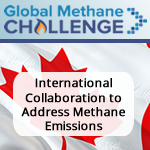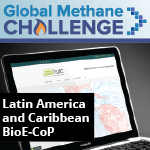International Collaboration
Since the GMI was first launched, the global community's interest in addressing methane has grown significantly. The GMI collaborates routinely with international organizations and has established formal strategic alliances with two critical partners - the Climate and Clean Air Coalition (CCAC) and the United Nations Economic Commission for Europe (UNECE). Learn more about these organizations below.
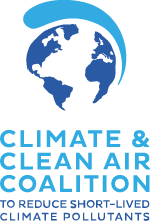 |
Climate and Clean Air Coalition (CCAC) GMI Strategic Alliance CCAC is a voluntary partnership dedicated to reducing short-lived climate pollutants. CCAC Partners work on-the-ground to reduce methane from municipal solid waste in cities all over the world. They cooperate with the private sector to address methane from upstream oil and gas operations and help farmers to address agricultural emissions.
|
 |
United Nations Economic Commission for Europe (UNECE) GMI Strategic Alliance UNECE, one of five regional commissions of the United Nations, helps countries meet sustainable development goals. Through these groups, UNECE develops and disseminates best practice guidance and brings together stakeholders and experts in the coal mining and oil and gas sectors.
|
 |
International Energy Agency The International Energy Agency is an autonomous intergovernmental organization, within the Organisation for Economic Co-operation and Development framework, made up of 30 member countries. IEA conducts methane work as part of a broad organizational mission to shape energy policies for a secure and sustainable future. The IEA’s Methane Tracker uses the latest evidence from the scientific literature and measurement campaigns to analyze needs and opportunities to reduce methane emissions in the oil and gas sector. |
 |
The United Nations Environment Programme (UNEP) UNEP is the leading global environmental authority that sets the global environmental agenda, promotes the coherent implementation of the environmental dimension of sustainable development within the United Nations system, and serves as an authoritative advocate for the global environment. |
 |
The World Bank’s Climate Change Group The World Bank works in every major area of development. In the area of climate change, the World Bank helps countries by providing a wide array of financial products and technical assistance for infrastructure projects and efforts to shift to low-carbon economies. The World Bank’s Global Gas Flaring Reduction Initiative (GGFR) The GGFR is a public-private initiative comprising international and national oil companies, national and regional governments, and international institutions that works to increase use of natural gas associated with oil production. Specifically, the GGFR addresses technical and regulatory barriers to flaring reduction, conducts research, disseminates best practices, and develops country-specific gas flaring reduction programs. |
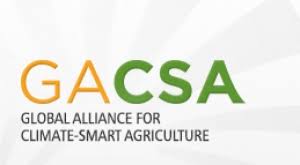 |
Global Alliance for Climate-Smart Agriculture (GACSA) GACSA advances the three pillars of climate smart agriculture – productivity, adaptation and mitigation – by providing a platform to share and exchange experiences and knowledge about mitigating the effects of greenhouse gas emissions in the agriculture sector. |
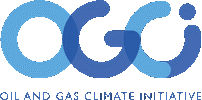 |
Oil and Gas Climate Initiative (OGCI) OGCI is a chief executive officer (CEO)-led consortium that aims to accelerate the industry response to climate change. Reducing member companies’ methane emissions to near zero is a top priority for OGCI. |



